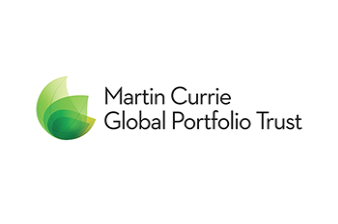Martin Currie Global Portfolio (MNP) has recently released its annual results, for the financial year ending 31 January 2023.
- Over the 12 month period MNP reported a NAV total return of -8.8%, compared to the 0.3% return of its benchmark index, the MSCI ACWI. MNP also reported a share price total return of -9.3%. MNP’s negative performance was attributed to its ‘quality growth’ bias, an investment style which suffered substantially over 2022 due to the impact of rising interest rates. Notable detractors included Farfetch, Tencent, and Adidas, all of which were exited over the year.
- MNP has begun to see a substantial reversal in the headwinds facing the style, and in the final three months of its financial year the trust generated a NAV total return of 12.9%, compared to the 3.7% of its benchmark.
- MNP will pay a total dividend of 4.2p per share, in line with its pay-out for the prior year.
- The board has reduced the management fee on the trust to 0.45% of net assets. Previously, the investment management fee was 0.5% for the first £300m of net assets and 0.35% for net assets in excess of £300m.
- The board operates a strict zero discount policy, and over the year repurchased 10,510,850 to achieve this, equal to 14% of the current circulation.
MNP’s portfolio manager, Zehrid Osmani, commented:
“In periods of rising interest rates markets can deviate from fundamentals for some time, selling off companies with long duration of growth and compounding cash flows, such as the companies that we hold in our portfolio. In periods of rising interest rates, the market tends to favour short-duration assets, such as Value stocks to which the Company has no exposure. This therefore led to a style-leadership shift that was detrimental to the portfolio, contributing to the underperformance during the year.
“In the early part of 2022, we also had the tragic invasion of Ukraine by Russia. The resultant inflation led by energy and commodity prices, caused a flight towards defence-exposed stocks, and “defensive” parts of the market. The Company holds no energy and no defence stocks, has little exposure to commodities-related stocks, and has an underweight to defensive sectors such as food producers and pharmaceuticals companies.
“Engagement has continued to be an important ongoing focal point for us throughout the year. We are pleased that the Company has retained its top-rating of five Morningstar Globes for Sustainability even under the new, more stringent, methodology that they have applied.
“With the ongoing focus on investing for a transitioning world towards net-zero, innovation rates are likely to continue to increase and, with this, disruption risk to traditional businesses is likely to continue to rise. For long-term investors, this opens up interesting areas of opportunity. However, it also highlights the need to be vigilant in terms of disruption risk on established business models, and to ensure that disruption risk is assessed in a detailed and structured analytical approach. Equally important is the ability for companies to remain innovative, both to fend off competitive pressures and to stay ahead of the disruptive trends that could challenge their market positioning.”
